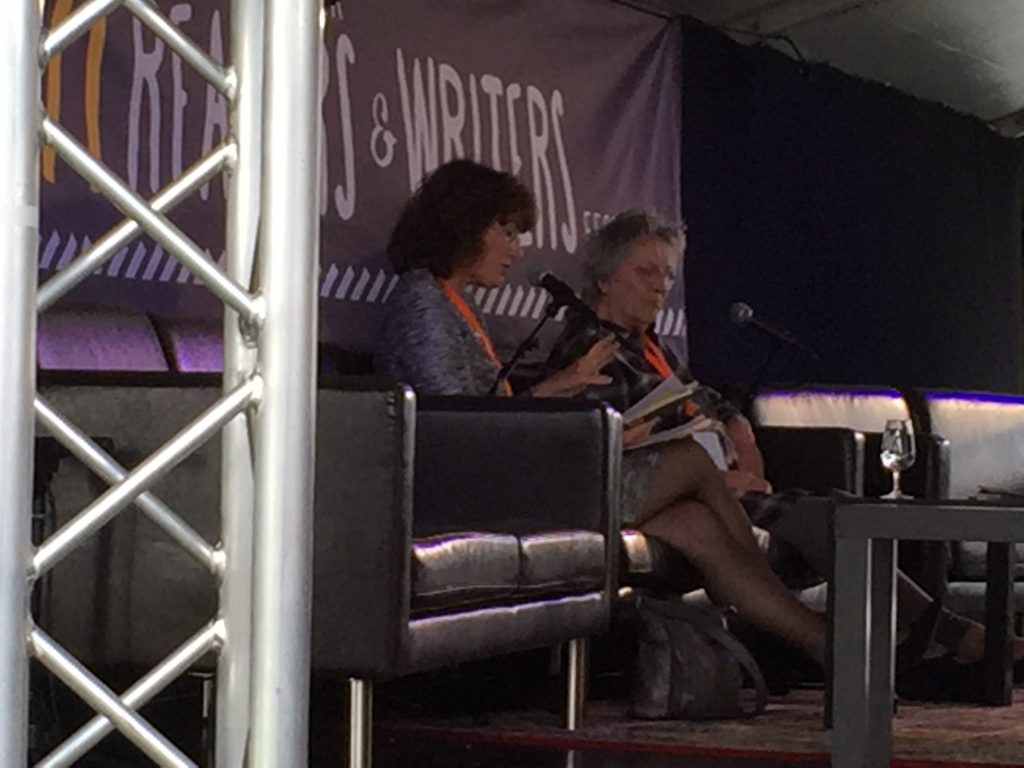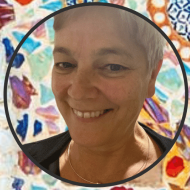Please be aware that this post deals with sexual assault and rape. Please take care of yourself and if you find this subject triggering, please scroll on.

Against my instincts, I attended your session at the Margaret River Readers and Writers Festival On Rape. I was going to ask a question and during the session began scribbling on an envelope to see if I could come up with just one question out of the many that clamoured for attention as I listened to you. I almost felt obliged to speak into the space and add a countering view to some of those you expressed. I looked at my envelope with its scrawl, saw the microphone too far away, tasted the stress chemicals from the creeping anxiety that comes when contemplating asking a question in a public session, and then the session ended.
Impact
It is now a week later, and exactly 17 years to the day since I survived a home invasion and sexual assault. I wrote a memoir about the experience of recovery as well as trying (and failing) to make the victim services system better. I called it Not My Story because I am a complex and varied human being and this is just one experience I have had. As Sohaila Abdulali said in her excellent book:
rape doesn’t have to define you…it is terrible but survivable…you can go on to have a joyous life
What We Talk About When We Talk About Rape, p. 10
You declare that healing from rape is a must – a sort of requirement of a good feminist. You puzzled over the discrepancy between the number of war veterans who suffer Post Traumatic Stress Disorder (PTSD) compared to rape survivors.
I still remember the moment when I learned that women who had been victims of childhood sexual assault are much more likely to go on to be raped as adults. Doesn’t that account for at least some of the discrepancy?
Or is it just important that we remember that rape is a horrendous thing to endure? Back to Soulali Abdulali:
I have one terrible fear about this book…that, in my hopes of contributing to the conversation in a level-headed manner, I will appear to be saying that rape is no big deal. It’s the fear that in saying it does not have to be the end of hope and light, I will appear flippant and not honor rape victims’ terrible suffering and trauma.
What We Talk About When We Talk About Rape p. 95
Rape and Justice
There were some key parts missing from the discussion on the justice system. The justice system embodies the status quo and lags well behind changing social mores. I found it puzzling that you thought sentence lengths were too long. I know someone who was repeatedly assaulted by her father from before she could remember until after she reached adulthood. Four years he got. Four years.
The section in your essay when you say “an elbow, a thumb even, can do you more harm that a penis” bleeps over the reality that the United Nations recognises rape as a weapon of war. Tell a woman raising a child who is the product of a rape that it would have been just as bad as if she’d been elbowed in the eye.
Healing
Someone in the audience asked you how you heal from rape, and you acknowledged that you didn’t really know. You acknowledged that to this day, if someone even lightly touches your face, tears can spring from your eyes. In other words, its still there. That, right there, is post-traumatic stress.
I spend quite a bit of my memoir talking about healing, and I am convinced in the importance of the body – it holds traumas, and it can release traumas.
I describe a moment not long after the rape when I found myself in a similar physical position – in the dark, scrabbling to open a door, my daughter on my hip. This time, I was quite safe, in a suburban cafe with one of those old toilets in the garden, and I had just mis-timed turning off the light and plunged myself too soon in darkness. I was able to consciously unplug the trigger (darkness, trying to open a door, daughter on hip) from danger. Bringing conscious thought to the incident was like magic, and I was able to do that over again with other triggers. I moved out of the place where it had happened, in order to tame those triggers, and I taught myself to sleep again.
I also used the nurturing touch of trusted practitioners – masseurs, energy workers, acupuncturists to name a few. I could feel the trauma being massaged out, the safe touch laying down new memories in my body. The first time I was massaged, I cried a lot. The second time, a little, the third time, not at all.
I’m going to finish with a vision to celebrate this, my seventeenth year of surviving and thriving since the assault. Imagine if we nurtured survivors of gender-based violence much like people who have a breast cancer diagnosis. We could offer a range of natural therapies and offered them a lovingly crafted quilt as a comfort measure and a strong sign from our society that we see the suffering and offer support and healing.
Wouldn’t that be something?
